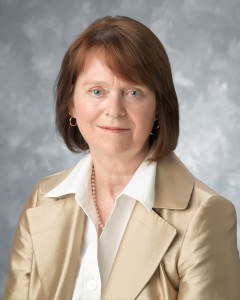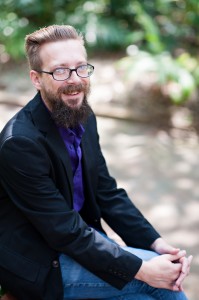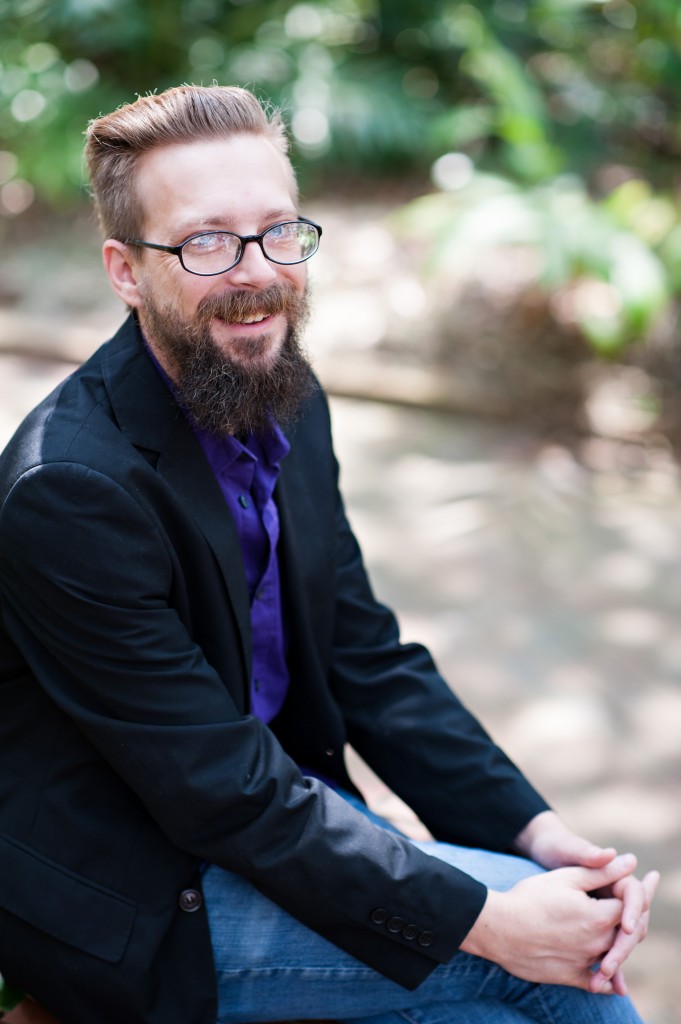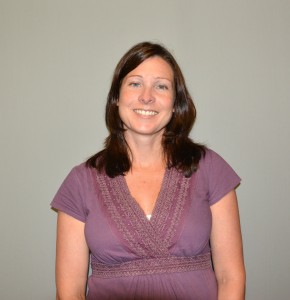Faculty named among most cited researchers
Zhihui Fang, professor of Education, and Nicholas Gage, associate professor of Special Education, were listed among the top 2 percent of the most cited researchers within their respective fields.
Zhihui Fang, professor of Education, and Nicholas Gage, associate professor of Special Education, were listed among the top 2 percent of the most cited researchers within their respective fields.
The Council for Exceptional Children Division for Research recognized two University of Florida College of Education faculty — Patricia Snyder and Nicholas Gage — as distinguished researchers.
The UF College of Education is assembling top faculty researchers from multiple fields to seek solutions in two critical areas of 21st century education – personalizing online math instruction and adapting educational technology for students with visual impairments.
The studies are funded by two grants, worth more than $10 million combined, from the Institute of Education Sciences, the research arm of the U.S. Department of Education.
Massive data mining for personalized learning
Nearly $9 million of the grant money supports a new project called Precision Education: Virtual Learning Lab, which bring together top experts in informatics, math education and professional development for teachers. Their charge is to advance a new approach for exploring massive sets of student data to update and personalize virtual instruction for math students.

Carole Beal
“With the increased use of computers in education, the large-scale mining of existing education data represents a big new opportunity for computers to help teachers adapt their practice for today’s digltal world and help their students to improve their virtual learning,” said UF education technology Professor Carole R. Beal, the principal investigator of both studies.
The new Virtual Learning Lab comprises faculty researchers at UF and the University of Notre Dame, and experts from Study Edge, a Gainesville-based online tutoring company.
Over the next five years, the researchers will conduct studies in the emerging discipline known as precision education, which uses education data from prior students—such as standardized test scores, personal traits, teaching methods used and school administrative records—to personalize the learning experience for future students.
No more one-size-fits-all lesson plans geared to some “statistically average” student profile.
The researchers will focus on online or virtual learners, relying on the hot, new education technology of “big data” learning analysis. Their approach has them using powerful “supercomputers” to rapidly scrutinize the massive education data, plus figures from students’ use of interactive or group learning tools.
“Our grand challenge is to improve the achievement of struggling online students,” said Beal, who was recruited from the University of Arizona in 2014 to head the new UF Online Learning Institute. “We will design new teacher development programs on the use of learning analytics and personalizing instruction, and how to track student progress when every student is doing something unique.”
Researchers at the Virtual Learning Lab will develop and test their personalized model of precision education on a popular online tutoring tool called Algebra Nation, which the UF Lastinger Center for Learning launched in 2013 in tandem with Study Edge. Algebra Nation has since been used by more than 3,000 teachers and 200,000 math students from all 67 Florida school districts—mostly ninth graders gearing up for the mandatory end-of-course exam in algebra 1.
The researchers delight at the wealth of revealing learning data the Algebra Nation students and program are generating. Near the end of the study, researchers will compare test results of students using the updated and personalized version of Algebra Nation with the scores of students who used the regular version.
Beal said the Virtual Learning Lab also will serve as a national hub for researchers nationwide—forming a network for sharing findings and collaborating on new efforts to advance the fledgling field of virtual precision education and personalized learning.
“Our findings in the Virtual Learning Lab project will serve as a national model for a new approach to developing online learning systems,” she said.
The project’s co-principal investigator is Walter Leite, UF professor of research and evaluation methodologies (REM) with expertise in big-data mining and learning analysis. Other College of Education faculty researchers involved are: Corrine Huggins-Manley (REM), and Don Pemberton and Philip Poekert from the college’s Lastinger Center for Learning.
Two other participating UF faculty scholars are: George Michailidis, director of the UF Informatics Institute; and Juan Gilbert, chairman of computer and information sciences and engineering, and a pioneer in the field of human-centered computing.
Other key team members are psychology and computer science professor Sidney D’Mello of the University of Notre Dame and online tutoring specialist Ethan Fieldman of Study Edge.
Helping students with sight impairments solve online math problems with graphics
The theme of personalized online learning carries over to Beal’s second federal grant, a three-year, $1.4 million project to help solve the unique challenges that blind and visually impaired students must overcome in learning online.
Think about it: How can students who can’t see the images on their computer screen solve algebra or geometry problems filled with line, bar and circle graphs, figures, geometric shapes and maps?
Beal sought solutions to help these students for several years while at Arizona, and she is expanding her studies now with her new UF colleagues. She said one of her ongoing research interests is to explore how technology can make online learning more accessible to students with special needs.
“In my investigations, I have found that students who appear disengaged in the traditional classroom are often among the most active learners in the online learning setting,” she said.

Nicholas Gage
Beal has assembled a research team with colleagues from both Arizona and Florida to explore how technology can make online learning more accessible to students with special needs. They are Nicholas Gage from UF’s special education program as co-principal investigator, and, from Arizona, Sunggye Hong and L. Penny Rosenblum, both education researchers in disability and psycho-educational studies.
The researchers will develop and test an iPad-based instructional system to train students with visual impairments to locate and decipher targeted information in math graphics problems. The system includes audio, print and braille cues in accompanying books to point users to targeted graphics and word problems.
Beal said they plan to recruit up to 150 middle and high school students with visual impairments for the project from regular schools and specialized residential programs in Florida, Arizona and other states.
“Some of our students will be from regular schools and receiving special education services, while others attend specialized residential programs such as the Florida School for the Deaf and Blind in St. Augustine,” Beal said.
Dean Glenn Good of the UF College of Education called the federal grants awarded to Beal’s research teams “a major accomplishment in light of how extremely competitive it is to win major awards in education research.”
“The big winners from these projects,” Good said, “will be the struggling students who will benefit from the enhanced learning tools and teaching strategies that will help them succeed in their technology-based learning activities.”
SOURCE: Carole R. Beal, 352-273-4178; crbeal@coe.ufl.edu
WRITER: Larry Lansford, communications director, UF College of Education; 352-273-4137; llansford@coe.ufl.edu
Nicholas Gage, a UF assistant professor in special education, has gained international recognition for his early-career research success and commitment to advancing the emerging science of positive behavior support.
 Gage is one of two recipients of the 2015 Ted Carr Initial Research Award, presented by the international Association for Positive Behavior Support. The annual honor goes to emerging researchers whose work reflects conceptual sophistication, applied relevance and promise of substantial contribution to the field.
Gage is one of two recipients of the 2015 Ted Carr Initial Research Award, presented by the international Association for Positive Behavior Support. The annual honor goes to emerging researchers whose work reflects conceptual sophistication, applied relevance and promise of substantial contribution to the field.
Gage was honored at the APBS International Conference in March.
Positive behavior support, or PBS, focuses on intervention strategies that are compassionate, productive and educationally oriented to help individuals develop constructive behaviors to meet their life goals in social relationships, employment, academic achievement, health and other areas.
Gage’s research is dedicated to helping all students succeed in school, focusing particularly on students at risk of, or receiving special education services for, emotional-behavioral disorders. He has specific expertise in statistical modeling, research design and methods, and functional behavioral assessment.
“I believe my research and service efforts will have a positive and lasting impact on the college’s relationship with local schools and schools statewide,” he said.
After he earned his Ph.D. in special education from the University of Missouri, Gage was an Institute of Education Sciences post-doctoral fellow with the Center for Behavioral Education and Research at the University of Connecticut, working on statistical and methodological advances in the emotional and behavioral disorders research field.
CONTACTS
SOURCE: Nicholas Gage, UF assistant professor in special education, UF College of Education; gagenicholas@coe.ufl.edu
WRITER: Candice Wynter, communications intern, UF College of Education; cwynter@ufl.edu
MEDIA CONTACT: Larry Lansford, communications director, UF College of Education; llansford@coe.ufl.edu; 352-273-4137
UF’s College of Education this year welcomed six new additions to its faculty: Kristen Apraiz, Kristina DePue, Nicholas Gage, Ashley Macsuga-Gage, Diane Porter Roberts and Rachel Wolkenhauer.
 Kristen Apraiz is a clinical assistant professor in the School of Teaching and Learning, in which she teaches elementary mathematics education courses. She received her bachelor’s and master’s degrees in special education from Florida State University. She is currently pursuing her Ph.D. in mathematics education at the College of Education. Previously, she taught mathematics for middle and high school, as well as adult education, for eight years. Apraiz’s research is focused on education for pre-service mathematics teachers.
Kristen Apraiz is a clinical assistant professor in the School of Teaching and Learning, in which she teaches elementary mathematics education courses. She received her bachelor’s and master’s degrees in special education from Florida State University. She is currently pursuing her Ph.D. in mathematics education at the College of Education. Previously, she taught mathematics for middle and high school, as well as adult education, for eight years. Apraiz’s research is focused on education for pre-service mathematics teachers.
Kristina DePue is an assistant professor of counselor education in the School of Human Development and Organizational Studies in Education. DePue graduated from Vanderbilt University with both her bachelor’s and master’s degrees. She received her doctoral degree in counselor education from the University of Central Florida. There, she led a multi-year study in the Community Counseling Clinic that focused on counselor development and supervisory relationships. Her personal and research interests include helping individuals struggling with dependence from alcohol and other drugs.
Nicholas Gage is an assistant professor of special education in the School of Special Education, School Psychology, and Early Childhood Studies. He received his bachelor’s and master’s degrees from Goddard College, and an additional master’s degree from the University of Missouri. He graduated with his Ph.D. in special education from the University of Missouri. Gage worked at the University of Connecticut’s Center for Behavioral Education and Research as an Institute of Education Sciences Postdoctoral Fellow. His research is focused on identifying policies and practices at the national, state, local and classroom level to support the academic, social and behavioral needs of students with or at-risk for emotional and/or behavioral disorders.
Ashley Macsuga-Gage is a visiting clinical assistant professor of special education in the School of Special Education, School Psychology, and Early Childhood Studies. She graduated from the University of Connecticut with her bachelor’s, master’s and doctoral degrees in special education. In addition to her doctoral studies, she also earned two additional graduate certifications in positive behavior interventions and supports and program evaluation. Macsuga-Gage’s research interests include the implementation of class-wide and school-wide positive behavior support practices.
Diane Porter Roberts, or “DP,” is an assistant clinical professor of personnel in higher education in the School of Human Development and Organizational Studies. She has served as the program coordinator and director of the student personnel in high education graduate program since 2008. She received her bachelor’s, master’s and specialist degrees in education from Appalachian State University. She received her Ph.D. in higher education administration from UF’s College of Education. Prior to joining the College of Education full time, she worked for UF’s Department of Housing and Residence Education for 18 years. Her research specialties include the competencies of professional and graduate housing staff, living learning communities, college student learning outcomes assessments, and advising student organizations, among others.
Rachel Wolkenhauer is a clinical assistant professor in the School of Teaching and Learning, in which she teaches about culturally-responsive classroom management. She received her bachelor’s degree in elementary education from the University of South Florida, and her master’s and doctorate degrees in curriculum and instruction from UF’s College of Education. She recently published the book “Inquiring into the Common Core” with College of Education professor Nancy Fichtman Dana and Jamey Bolton Burns, a program coordinator for the Lastinger Center for Learning. Her primary research interest is in practitioner inquiry for teacher professional development.
College of Education
140 Norman Hall
PO Box 117040
Gainesville, FL 32611-7044
(352) 392-0726
